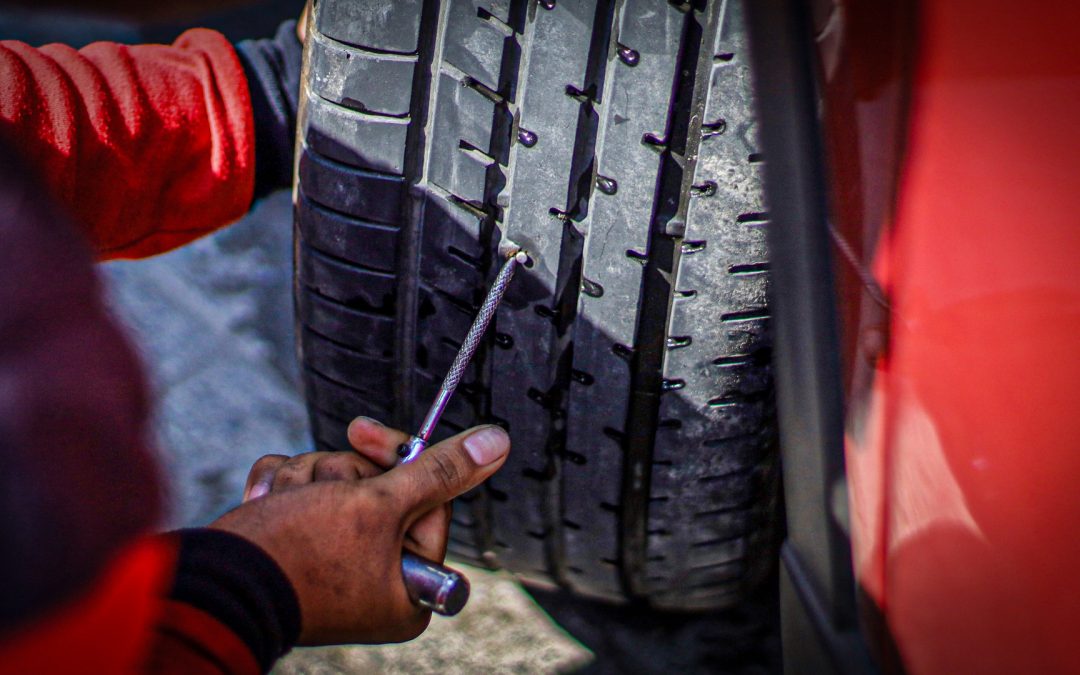Patching a punctured tire is a common job, but are you up to date on the latest guidance for safe plug locations?

New legislation in Congress would require automakers to provide independent repair shops with all information and tools necessary to service their motor vehicles, the first such law proposed in the United States and the latest in a series of moves nationwide to protect people’s freedom to fix cars and trucks.
Chicago-based Representative Bobby Rush proposed the Right to Equitable and Professional Auto Industry Repair Act, a.k.a. the REPAIR Act. The rationale laid out in the draft released Thursday is nothing new for folks who have been following the growing movement:
Here’s how Rush summarized it in his press release:
“Americans should not be forced to bring their cars to more costly and inconvenient dealerships for repairs when independent auto repair shops are often cheaper and far more accessible. But as cars become more advanced, manufacturers are getting sole access to important vehicle data while independent repair shops are increasingly locked out. The status quo for auto repair is not tenable, and it is getting worse. … The REPAIR Act is commonsense, necessary legislation that will end manufacturers’ monopoly on vehicle repair and maintenance and allow Americans the freedom to choose where to repair their vehicles.”
Until now, industry advocates were mainly focused on a voter-approved right-to-repair ballot measure in Massachusetts, which automakers fiercely opposed and continue to fight through litigation. The proposed requirements there focused on equal access to data, which manufacturers like Subaru and Kia recently responded to by simply turning off their Starlink and Kia Connect services on vehicles sold in Massachusetts. Subaru recently said “compliance with the law at this time is impossible.”
The new REPAIR Act would require similar rules across the country, and also go beyond what’s being debated in Massachusetts. It proposes a number of things that vehicle manufacturers, and the government itself, must do to make the situation more fair and ensure it stays fair in the future. It basically aims to do four things:
Here’s what the act would do that specifically impacts auto repair shops.
The REPAIR Act would make it illegal for manufacturers to withhold access or create barriers to vehicle data, critical repair information and tools. It directly states that OEMs can’t stop consumers from choosing whatever towing or service provider they prefer, or stop independent repair shops from being able to maintain a motor vehicle in the same way as the manufacturer or dealer.
Manufacturers would also need to stop steering consumers back to their own parts and dealerships, or at least simultaneously inform vehicle owners – in the same font size – that they can “choose which repair parts, tools, and equipment to purchase and should carefully consider their options.” This would apply to any maintenance service procedure, recommendation, service bulletin, repair manual, position statement or other guides, but does exempt recall and warranty repairs.
Furthermore, to add transparency for owners and service providers, OEMs would need to notify vehicle owners and service providers when vehicle-generated data is being accessed, and whether an in-vehicle command or software update is required to complete a repair.
The law wouldn’t just stop manufacturers from blocking access – it would also mandate that they make access much easier and more affordable.
First, upon enactment of the law, manufacturers would need to provide access to vehicle-generated data for free, without any proprietary tool or license. They would also need to immediately make available any critical repair information or tools “at a fair, reasonable, and nondiscriminatory cost.”
Then, within a year, if automakers use a wireless technology or telematics systems to transmit any vehicle-generated data, they would need to make that data available to owners and shops through a standardized access platform. The details and standards for that platform would be developed by NHTSA and a new entity made up of OEMS, aftermarket manufacturers, telematics providers and other stakeholders.
Finally, within two years of passage, the FTC and NHTSA would need to issue regulations requiring manufacturers and dealers to inform consumers of their rights under the new law at the point of purchase or lease.
The bill was introduced to the House of Representatives Committee on Energy and Commerce. If you paid attention to Schoolhouse Rock, you’ll know the legislation will now need to be approved by the committee before being debated and voted on by the House and Senate, and then signed into law by the President.
On the Congressional side, right to repair has bipartisan support. Just a day before Rush introduced the REPAIR Act, a Democrat and Republican introduced what’s called the Freedom to Repair Act, which aims to reform copyright laws with the intent of making it easier for consumers to get their devices repaired.
As for President Joe Biden, he issued an executive order in July 2021 calling on the FTC to address anti-competitive repair restrictions, and has vocally supported the issue in statements since.
“Too many areas, if you own a product, from a smartphone to a tractor, you don’t have the freedom to choose how or where to repair that item you purchased,” he said recently.
The articles and other content contained on this site may contain links to third party websites. By clicking them, you consent to Dorman’s Website Use Agreement.
Participation in this forum is subject to Dorman’s Website Terms & Conditions. Please read our Comment Policy before commenting.
Diagnosing an illuminated check engine light (CEL) is something professional technicians do on an everyday basis. The...
Description Patching a punctured tire is a common job, but are you up to date on the latest guidance for safe plug...
Nobody wants to hear it, but cyberattacks and ransomware are part of a complicated new reality for the digital systems...